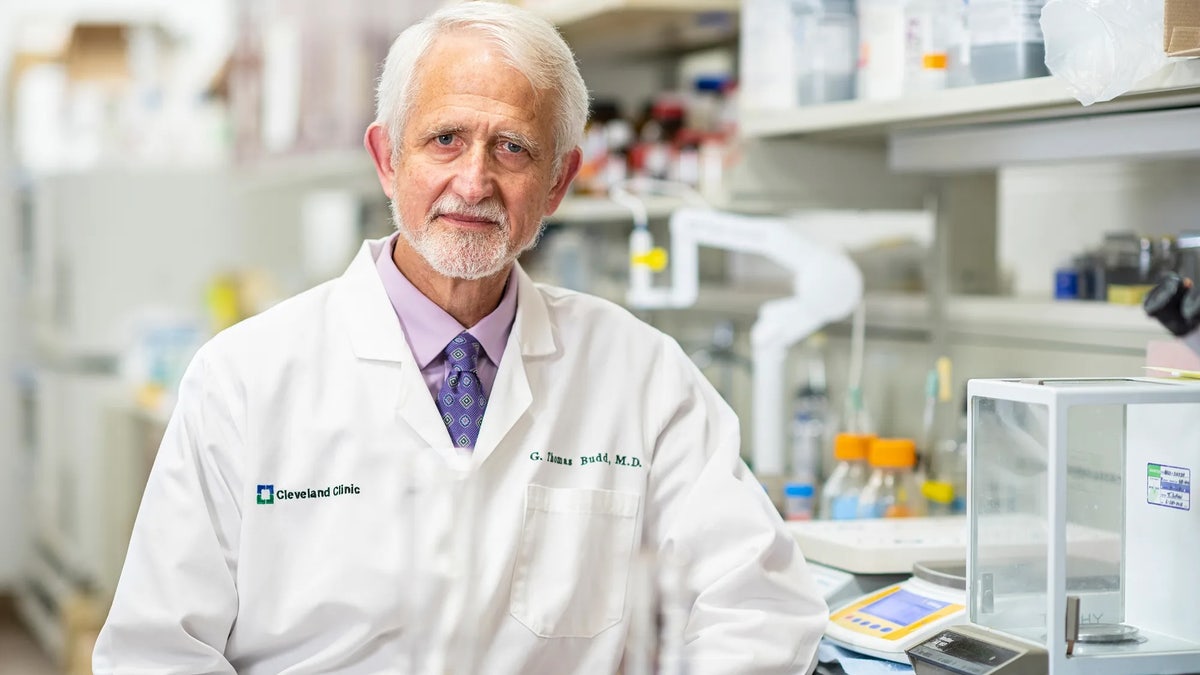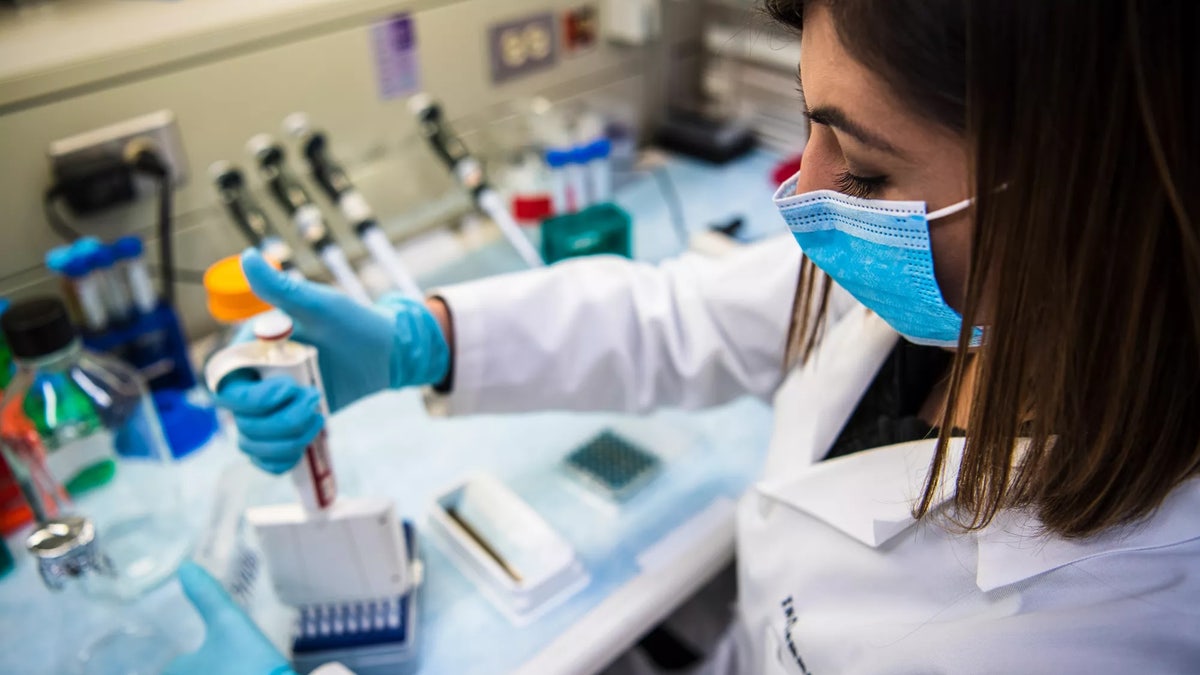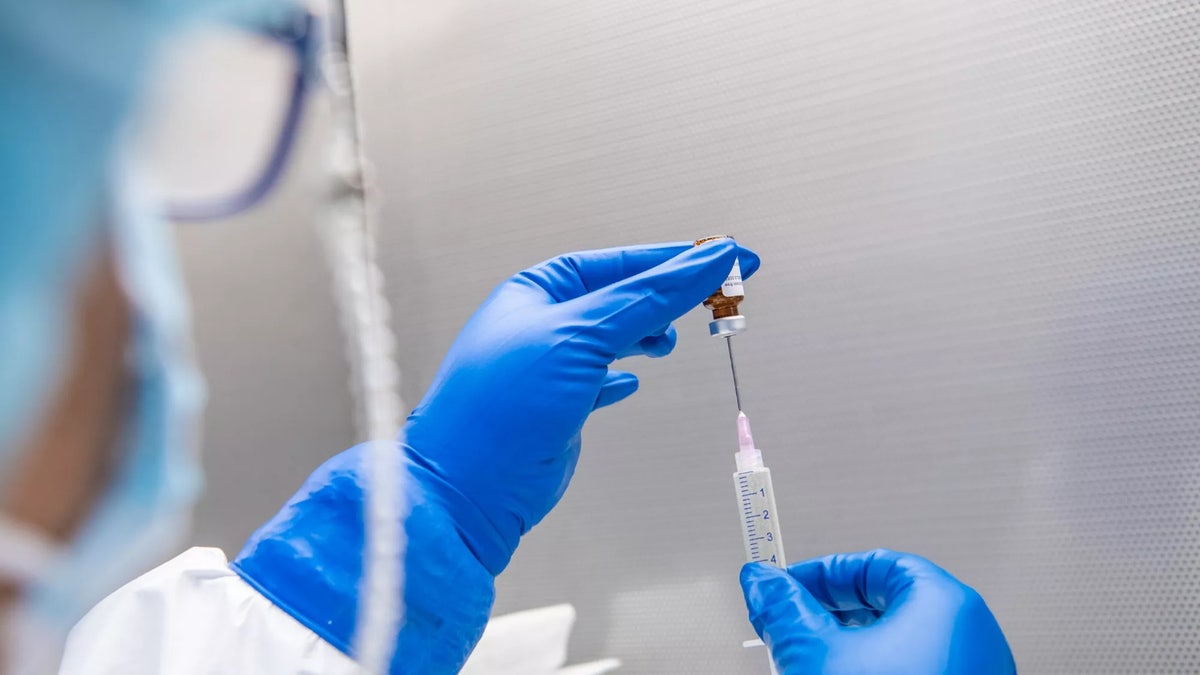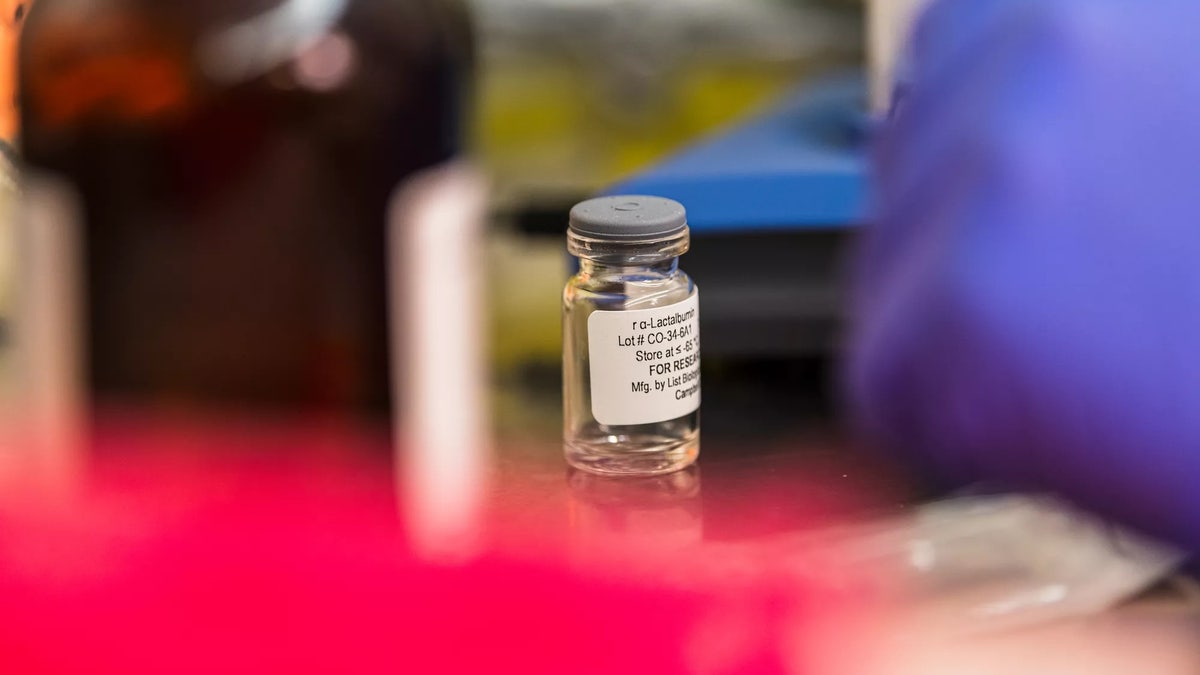A breast cancer vaccine could be closer to reality, according to Cleveland Clinic, as its researchers have announced some encouraging results.
At the Society for Immunotherapy of Cancer earlier this month in Texas, researchers shared updated findings from a study of a new vaccine designed to target triple-negative breast cancer, a press release stated.
Triple-negative breast cancer (TNBC) is a highly aggressive type of breast cancer, according to the American Cancer Society (ACS).
4 HIDDEN SIGNS OF BREAST CANCER TO WATCH FOR: ‘YOU KNOW YOUR BODY’
TNBC grows and spreads faster than less aggressive types and is more difficult to treat.

G. Thomas Budd, M.D., lead study researcher, is pictured in the Cleveland Clinic lab. "The investigational vaccine represents a potential new way to combat breast cancer," he said. (Courtesy of Cleveland Clinic)
The breast cancer vaccine that Cleveland Clinic is studying is the first that aims to prevent triple-negative breast cancer from developing, according to G. Thomas Budd, M.D., principal investigator of the phase 1 study at Cleveland Clinic’s Cancer Institute.
AFTER A BREAST CANCER DIAGNOSIS, HERE ARE 10 IMPORTANT THINGS YOU SHOULD DO, EXPERTS SAY
The vaccine uses a protein found in breast tissue that is dedicated to lactation — called α-lactalbumin — which is no longer created after a woman is past childbearing age, Budd told Fox News Digital.
"Employing a retired lactation protein as a breast cancer vaccine autoantigen made sense because most breast cancers occur in women ages 40 and older, and the vast majority of those women no longer breastfeed," he said.

A researcher conducts a breast cancer vaccine-related experiment in a lab at Cleveland Clinic. The vaccine uses a protein found in breast tissue that is dedicated to lactation, called α-lactalbumin. (Courtesy of Cleveland Clinic)
This protein was selected because it is no longer found in detectable amounts in normal, aging breast tissues, but is expressed at high levels in more than 70% of triple-negative breast cancers, Budd shared.
"The investigational vaccine represents a potential new way to combat breast cancer," he said.
"It represents a paradigm shift in how we approach cancer care — focusing on prevention rather than treatment after the fact."
In the Phase 1 trial, the researchers found that the investigational vaccine was "generally well-tolerated and produced an immune response in most patients," according to a Cleveland Clinic press release.
The team also presented the vaccine’s side effects, highest tolerated dose and immunologic effects, the release stated.
The Phase 1 trial, funded by the U.S. Department of Defense, was conducted at Cleveland Clinic’s main campus in partnership with Anixa Biosciences, Inc., a California-based biotechnology company focused on treating and preventing cancer.
It included 26 patients in three separate groups.

A pharmacy research technican demonstrates a mock preparation of the new breast cancer vaccine. (Courtesy of Cleveland Clinic)
These findings come after nearly two decades of research by the late Vincent Tuohy, PhD, of Cleveland Clinic Lerner Research Institute, Budd noted.
Next year, Anixa plans to launch a Phase 2 study to gauge the vaccine’s effectiveness.
"Our hope is that future studies will demonstrate that the antigen-specific T cell responses we observed translate to the prevention of triple-negative breast cancer recurrence," Budd said.
CLICK HERE TO SIGN UP FOR OUR HEALTH NEWSLETTER
Fox News medical contributor Dr. Nicole Saphier called the development of breast cancer vaccines "groundbreaking and exciting."
"It represents a paradigm shift in how we approach cancer care — focusing on prevention rather than treatment after the fact," Saphier, who was not involved in the research, told Fox News Digital.

A vial of the breast cancer vaccine is pictured in the lab. "The entire cancer community eagerly awaits further advancements in this area, as it could usher in a new era of cancer prevention strategies," a doctor said. (Courtesy of Cleveland Clinic)
"If successful, such vaccines could significantly reduce the incidence of breast cancer, saving countless lives and reducing the emotional, physical and financial burdens associated with cancer treatment."
CLICK HERE TO GET THE FOX NEWS APP
Breast cancer vaccine development is particularly important for high-risk individuals, the doctor noted — "but also presents a potential for broader public health benefits, helping to ease the societal and economic impact of cancer."
For more Health articles, visit www.foxnews.com/health
Added Saphier, "The entire cancer community eagerly awaits further advancements in this area, as it could usher in a new era of cancer prevention strategies."
Melissa Rudy is senior health editor and a member of the lifestyle team at Fox News Digital. Story tips can be sent to melissa.rudy@fox.com.








